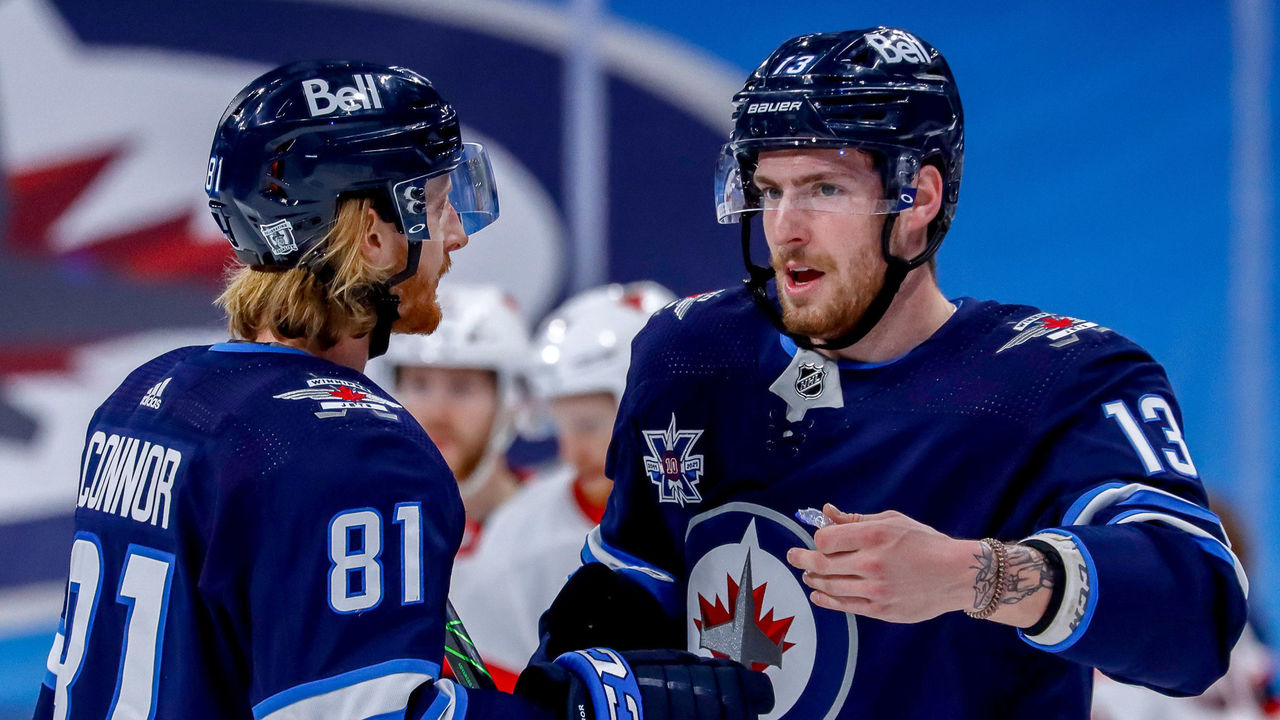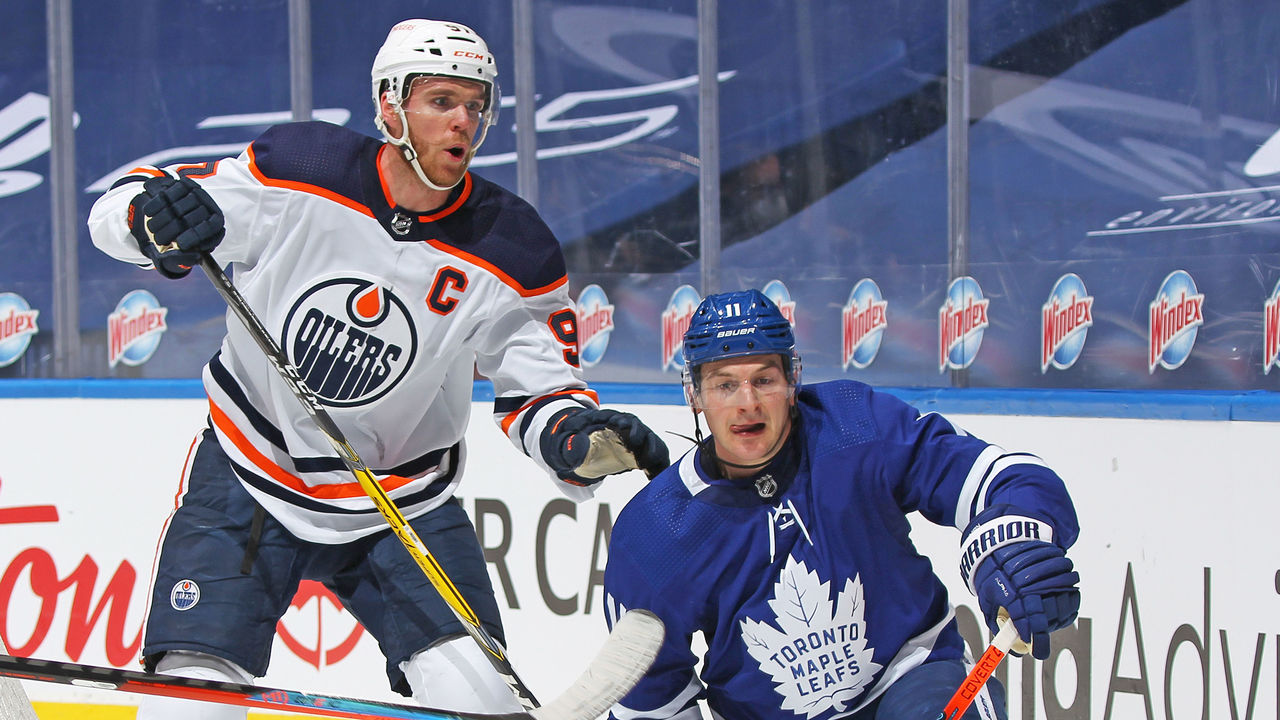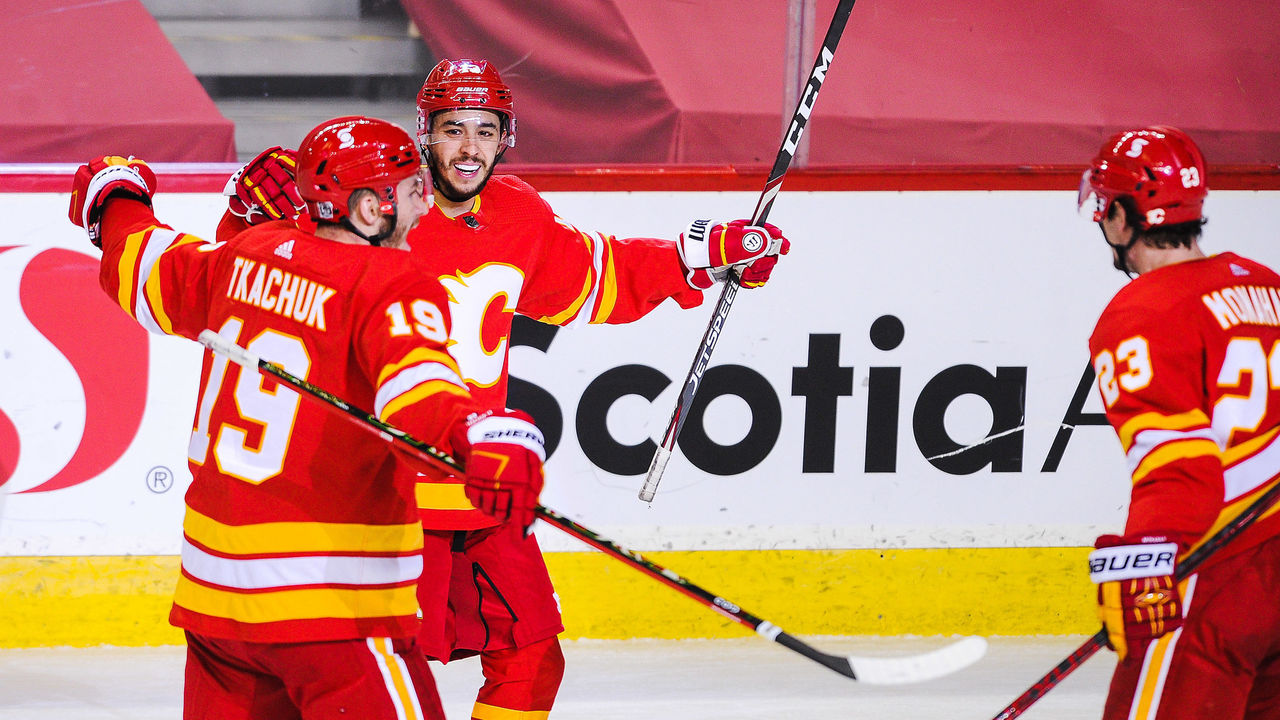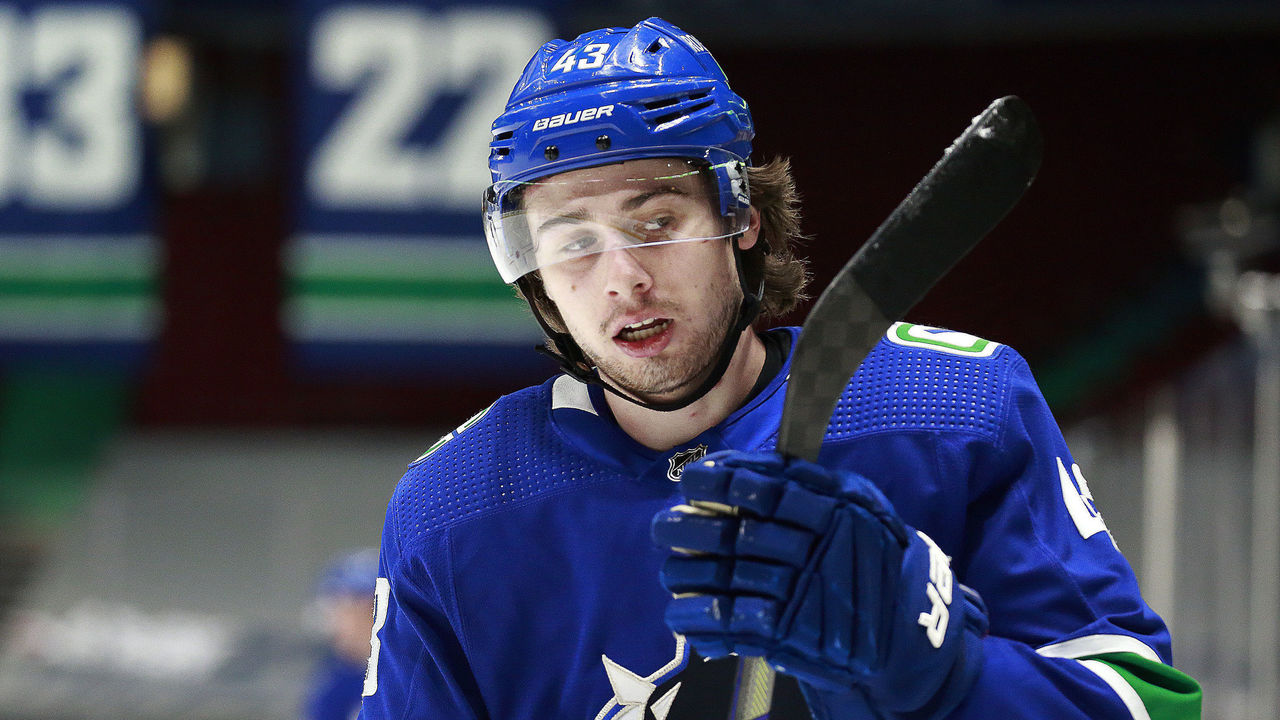What the Jets, Oilers, Flames, and Canucks have to prove this season
The NHL preseason gets going Saturday night with a Montreal Canadiens-Toronto Maple Leafs rivalry matchup. So begins Montreal's quest to approach the Stanley Cup Final again and Toronto's latest attempt to triumph even once in the playoffs.
We've already covered what the year ahead means to those teams and to the Ottawa Senators. Let's run through the big questions Canada's western squads - the Winnipeg Jets, Edmonton Oilers, Calgary Flames, and Vancouver Canucks - face at the outset of the season.
Will the real Jets please stand up?

During the first week of the 2021 playoffs, Team A went 4-0 with three overtime victories while scoring 14 total goals to the opponent's eight. Later, across a different four-game stretch, Team B went winless, was outscored 14-6, and was eliminated from the postseason.
The comparison is crude, but it encapsulates the full Jets experience. Team A: Winnipeg ended Connor McDavid's transcendent season by jamming his attacking lanes and capitalizing offensively in the clutch. Team B: The version of the Jets that got stuffed by Carey Price.
Having face-planted the moment they were favored to win the North Division, the Jets return to the Central looking like the Colorado Avalanche's primary challenger. It stung to lose forward Mason Appleton to the Seattle Kraken, but the Jets' first and second lines still brim with talent. Not to mention the team is backstopped by Connor Hellebuyck, the NHL's runaway leader in goals saved above expected (an Evolving-Hockey stat) over the past two seasons.
General manager Kevin Cheveldayoff traded draft picks to bring in defensemen Brenden Dillon and Nate Schmidt, seeking to upgrade a shaky blueline. The offseason priority was clear: make it harder to identify a weak link between the two additions, Neal Pionk, Josh Morrissey, Dylan DeMelo, and Logan Stanley.
To play to their potential, the Jets need Pierre-Luc Dubois to rediscover his peak form. Cheveldayoff flipped Patrik Laine to the Columbus Blue Jackets last January believing that Dubois would excel next to the likes of Kyle Connor and Nikolaj Ehlers. However, quarantining for two weeks upon entering Canada set the tone for his tepid Winnipeg debut. That said, Dubois was a beast for Columbus as recently as the 2020 playoff bubble, and he has incentive to bounce back before becoming a restricted free agent next summer.
Did McDavid's supporting cast improve?

Since they fell to the Anaheim Ducks in Game 7 of the second round in 2017, the Oilers have managed one lone postseason victory. That came in 2020, when the Chicago Blackhawks ousted them in four games from the best-of-five preliminary stage.
Seeking to shake things up, GM Ken Holland swung some of the offseason's most significant moves, including trading for Chicago's 38-year-old defensive mainstay Duncan Keith. At other points of the summer, Holland lured Zach Hyman over from Toronto on a seven-year contract, grabbed Cody Ceci for four years, dealt Ethan Bear to the Carolina Hurricanes for Warren Foegele, and re-signed Darnell Nurse and Tyson Barrie to anchor the blue line.
Will these moves make a meaningful difference? Toronto valued Hyman’s spark and scoring ability, while the advanced metrics indicate Keith might be cooked. Either way, some teammates need to emerge offensively as reliable complements to McDavid and Leon Draisaitl. The superstar duo tallied nine points in the last two playoff losses to the Jets, but the second through fourth lines were ineffective. Story of McDavid's life.
Easing the burden on the stars means not having to worry about how they're officiated. In the course of racking up 105 points in 56 games last season, McDavid drew 29 penalties, second-most in the NHL. He doesn't get those calls in the playoffs: No Blackhawks players were penalized while tailing McDavid in the bubble, nor was any Jet this past spring. What a drag that was for an Oilers power play that clicked at a league-high 27.6% in 2021.
Now that the North Division is defunct, it'll be fun to watch McDavid try to maintain the same torrid scoring pace against U.S.-based teams. He gashed the Flames and Canucks for 16 goals and 40 points in 20 matchups last season but only gets to face those Pacific Division opponents a combined eight times in 2021-22.
Does Calgary's core have a comeback in store?

Johnny Gaudreau, Sean Monahan, and Mikael Backlund have played together since 2014-15 and with Matthew Tkachuk for the past five seasons. Stability is a virtue, but after the Flames missed the playoffs in the North, it’s time to wonder if they’ve reached a fork in the road. The Kraken poached longtime captain Mark Giordano while Gaudreau and Tkachuk are set to hit free agency - Gaudreau will be unrestricted - next summer.
Like Vancouver, 2021 represented a step back for the Flames following an encouraging stay in the bubble. Eliminating Winnipeg in 2020 netted the franchise its first series win since Gaudreau's rookie year. Now the pressure is on to show that season wasn't an outlier. Tkachuk's scoring output has plateaued and Monahan's has slipped the past two seasons. Maybe Monahan's surgery to relieve a nagging hip issue will fix what ails him.
Plenty of their teammates have interesting seasons ahead. Was back-to-back Cup champion Blake Coleman a sound signing on a six-year deal? Can Andrew Mangiapane, the MVP of this year's world championships, sustain the momentum he drummed up at the event? Are Noah Hanifin and Chris Tanev ready to carry the defense with Giordano gone? Will goalie Jacob Markstrom rebound from his first poor season as an NHL starter?
Promisingly, the Pacific looks like the weakest division by some distance. The Ducks continue to rebuild and the San Jose Sharks might own the league's least enviable cap sheet. That Vegas bottled magic in its expansion season doesn't mean Seattle's in a position to do the same. Improve even marginally and the Flames will have the inside track to edge the Canucks and Los Angeles Kings for third place.
Can Vancouver forget last season?

The Canucks should be in the playoff mix, too - assuming they resemble the team that won two series in 2020 and pushed Vegas to the waning minutes of Game 7. The 2021 season put them through the wringer. Beset by a COVID-19 outbreak that sidelined them from games for 24 days, the Canucks eventually went 7-11-1 over the schedule’s grueling final month and slumped below Ottawa into last place in the North.
They endured uniquely brutal challenges that thankfully shouldn’t recur now that a projected 98% of the league is fully vaccinated. GM Jim Benning also worked the phone to trade Jay Beagle, Loui Eriksson, and Antoine Roussel, ultimately parting with the draft’s ninth overall pick to convince the Arizona Coyotes to assume their $12-million combined cap hit.
Beagle, Eriksson, and Roussel are pending UFAs, meaning Benning sacrificed future flexibility for Conor Garland and made a big bet that Oliver Ekman-Larsson will shine in fresh surroundings. When Ekman-Larsson played at five-on-five last season, per Natural Stat Trick, Arizona owned a 42% expected goals share and scored 38.7% of the actual goals, career lows for the 30-year-old defenseman. Seeing how his cap hit exceeds $7 million annually through 2027, it’s vital Ekman-Larsson look invigorated soon, if not as dominant as he was five years ago.
Quinn Hughes and Elias Pettersson haven’t signed as RFAs yet, but Benning did acquire solid two-way center Jason Dickinson, exploiting the Dallas Stars’ overload of forwards they didn’t want Seattle to nab for free. Maybe Dickinson will pair well with rookie winger Vasily Podkolzin, the No. 10 draft pick in 2019 whose arrival from the KHL has been hotly anticipated.
Once Hughes and Pettersson put pen to paper, this certainly won’t feel like a last-place roster. If all goes to plan this season, no Canadian team will have to settle for clearing that low bar.
Nick Faris is a features writer at theScore.